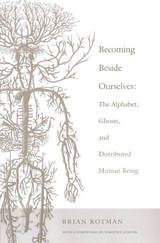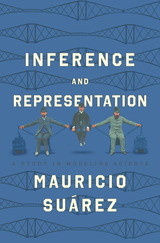Durkheim's Philosophy of Science and the Sociology of Knowledge: Creating an Intellectual Niche
University of Chicago Press, 1994
Paper: 978-0-226-74252-6 | Cloth: 978-0-226-74251-9
Library of Congress Classification Q175.S356 1994
Dewey Decimal Classification 501
Paper: 978-0-226-74252-6 | Cloth: 978-0-226-74251-9
Library of Congress Classification Q175.S356 1994
Dewey Decimal Classification 501
ABOUT THIS BOOK | TOC
ABOUT THIS BOOK
In this demonstration of the link between philosophy of science and scientific practice, Warren Schmaus argues that Durkheim's philosophy is crucial to his sociology. Through a reinterpretation of the relation between Durkheim's major philosophical and sociological works, Schmaus argues that Durkheim's sociology is more than a collection of general observations about society—it reflects a richly constructed theory of the meanings and causes of social life.
Schmaus shows how Durkheim sought to make sociology more rigorous by introducing scientific methods of analysis and explanation into the study of society. Durkheim tried to reveal how implicit, commonly held beliefs actually govern people's lives. Through an original interpretation of Durkheim's landmark writings, Schmaus argues that Durkheim, in his empirical studies, refined both the methods of sociology and a theory about society's shared knowledge and practices.
This book opens a new window on the development of Durkheim's thought and demonstrates how a philosophy of science can inspire the rise of a new science.
Schmaus shows how Durkheim sought to make sociology more rigorous by introducing scientific methods of analysis and explanation into the study of society. Durkheim tried to reveal how implicit, commonly held beliefs actually govern people's lives. Through an original interpretation of Durkheim's landmark writings, Schmaus argues that Durkheim, in his empirical studies, refined both the methods of sociology and a theory about society's shared knowledge and practices.
This book opens a new window on the development of Durkheim's thought and demonstrates how a philosophy of science can inspire the rise of a new science.
See other books on: 1858-1917 | Creating | Durkheim | Durkheim, | Durkheim, Emile
See other titles from University of Chicago Press


























